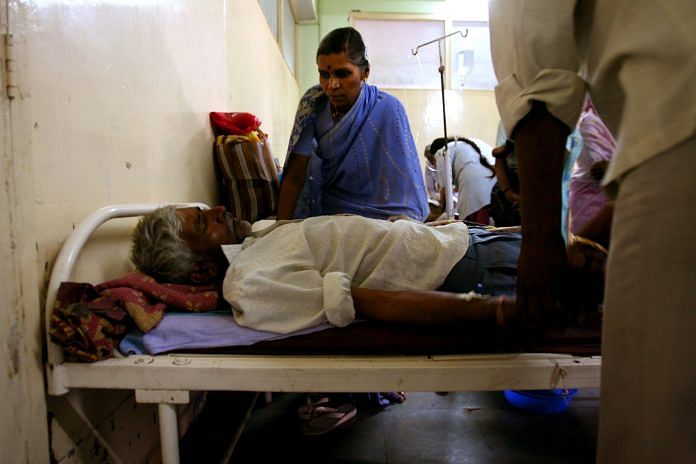The mercy killing debate began with the Aruna Shanbaug case, the Mumbai nurse spent 42 years in a vegetative state after a brutal assault by a sweeper.
New Delhi: The Supreme Court said Friday that the right to die with dignity is a fundamental right, thereby reiterating its 2011 ruling that passive euthanasia is permissible by law. The landmark ruling by the five-judge constitution bench recognised ‘living will’ as being enforceable, and also stressed on the importance of setting down strict guidelines that will govern in what circumstance passive euthanasia will be permitted.
What is passive euthanasia?
Passive euthanasia is the deliberate withholding or withdrawal of medical treatment with the intention of allowing a terminally ill patient to die. This can involve turning off respiratory systems, stopping life-sustaining medication, or even withholding food and water so the patient dies from starvation or dehydration.
It is called ‘passive’ because no action that actively kills the patient is taken — like a lethal injection — but rather, all life-sustaining measures are stopped and medication that could prolong life is withheld.
A specially constituted medical board will be the final authority on when and in which circumstance passive euthanasia is medically justified.
What is living will?
The Supreme Court deemed an advanced healthcare directive or ‘living will’ as valid and legally enforceable. A living will is a legal document by which any person can lay down instructions for what specific actions should be taken (or not taken) regarding their health if they are unable to make decisions for themselves in the future.
“A person is entitled to draft a living will specifying that he (or she) should not be given life support treatment if he slips into an incurable coma state in future,” the court said.
In cases where a person has not made a living will, the apex court said that relatives can approach high courts for permission to allow passive euthanasia.
The debate around mercy killing
The debate around the ethics of euthanasia or what is commonly called ‘mercy killing’ gained prominence in India as a result of the Aruna Shanbaug case. Shanbaug was a nurse in K.E.M. Hospital in Mumbai who spent 42 years in a vegetative state after being brutally attacked and raped by a sweeper after her shift one night.
In 2011, journalist-activist Pinky Varani filed a writ petition under Article 32 before the Supreme Court seeking the legalisation of euthanasia so that Aruna’s suffering could be ended by withdrawing life support. After forming a medical board to consider the circumstances and establishing the next of kin, the court ultimately denied the petition for euthanasia in Shanbaug’s case, but did, however, legalise passive euthanasia in the country. The court also made a distinction between active and passive euthanasia while declaring their 2011 judgment.
While the Indian Constitution recognises the right to live with dignity, it does not recognise the right to die. Thus, the debate until now was not only one of moral significance, but also legal practicality, constitutional validity and the fear of misuse.
“The ability of modern medical science to prolong life must be balanced with a responsibility to provide quality of life,” Justice D.Y. Chandrachud said in his separate ruling.
Voluntary euthanasia is legal in countries like Belgium, Luxembourg, Canada, the Netherlands, and assisted-suicide, if within the prescribed rules, is legal in Switzerland, Germany, and the US states of Oregon, Vermont, California, Montana, Colorado and Washington DC.




A person in pain is likely to think that death is better than the suffering. And caregivers and relatives are not even objectively positioned to take that decision. But I wonder what doctors think about this. What is the pain threshold? Are medical costs a factor? Is the patient in right frame of mind to give himself hope ? What about constant medical advances and the possibility that the best doctors of the world might be able to save someone? Indians on the whole have very little respect for life, half of them are cribbing about “population problems” and will happily agree to pop off as many as we legally can. Who gave the court the right to decide on someone’s life when the crime committed was “falling grievously ill”???? Terrible decision. Terrible cop out. Terrible defeat of doctors. Abject surrender. Fighting for your life is a fundamental right. Who gave this court the right to change that?